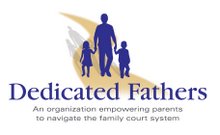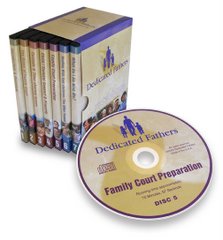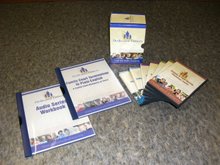Divorce & Child Custody:
ALLEGATIONS OF CHILD ABUSE
Part 1 of 2
By: Marvin Chapman
www.dedicatedfathers.org
www.unitedfathers.org
Research verifies mothers are responsible for 49% of all child abuse cases (with other relatives, strangers and fathers making up the other 51%).
In family court, twice as many mothers make child abuse allegations against fathers as do fathers against mothers.
Therefore, the mother making the allegation of child abuse against the father in a divorce is much more likely to be the perpetrator of the abuse than is the father.
Unfortuantely, the above facts are totally ignored by family courts.
In family court, the normal standards of evidence required for common criminals do not apply. In family court, child abuse allegations require no proof, no validation, no verification, no police reports, nor any other tangible evidence - the mere unsubstantiated allegation will do. Research proves upon the accusation of child abuse in family court, the presumption of guilt is taken for granted by the majority of attorneys and judges. Therefore, in family court, unsubstantiated hearsay allegations of abuse is all it takes for a father to be “guilty,” along with all the consequences which go with that “guilty” verdict. From the onset, the father will be treated as though he were found guilty in a real court.
Because the presumption of guilt is taken for granted by the majority of attorneys and judges in family court, the father will almost immediately be separated from his children - at least until he can “prove” his innocence. How does a father prove his innocence? How does he prove something did not happen? The reality is, he can’t. The very fact something did not happen prevents him from proving the non-happening of the non-event. It is a very well known and accepted fact that you can not prove the non-happening of a non-event - that is, except in family court.
During a divorce, the mere allegation of child abuse can and most of the time will cause an irreparable breakdown of the accused parent-child relationship. At the very least the previously healthy parent-child relationship will be disrupted and interfered with unnecessarily. The accused parent will typically become defensive and in the effort to prove their innocence, they will many times unwittingly distance themselves from their child, which is then used against them as verification of some form of abuse. With false allegations of abuse only the mothers win - fathers, children and father-child relationships all lose in some way or another.
Research also shows that mothers often obtain sole custody of their child, terminate visitation with the father, and then request an increase in child support due to the reduced time the father has with their child. All of these consequences tearing apart the restructuring family and damaging the father-child relationship, destroying the father emotionally, and injuring the father financially, are all built around simple unfounded false allegations and hearsay.
Many times the falsely accused parent is stigmatized and their reputation tarnished by the false allegations. This stigma and tarnished reputation may stay with them even if they are eventually found to be factually innocent. Many innocent men lose their jobs, become depressed and walk away from it all. In today’s fear filled society, the mere allegation of child abuse within family court can damage a person for the rest of their lives. Personally, I have had clients commit suicide over such abuse allegations - even after they were determined to be factually innocent of all charges. They could not take their neighbors, former friends and co-workers continued scorn and ridicule.
Regardless of the dire consequences of destroying a man’s life, false allegations of abuse, both spousal and child, are allowed to continue unabated in family court around this country. What most people seem to miss is the fact that it is the children who suffer the most with false allegations of abuse in that their relationship with one of their parents will be irretrievably impaired. Issues of abandonment, rejection, hurt and an overwhelming sense of loss will accompany most of these children for the rest of their lives.
Whether fiction, fantasy, legal ploy, or some other reason, false allegations of abuse are an indication the accusing parent is at the very least immature and over-enmeshed, and at worse, malicious, vindictive and prone to do anything to make the other parent “pay” for their perceived wrongs.
What makes false allegations of spousal abuse and child abuse so absurd is that when the parents were together, the accused parent was a good, decent and trusted parent. But once the breakup began, the accused parent was magically transformed into a mean, angry, abusing man. Why the family court can not see this fact is beyond any sound logical reasoning.
The use of false allegations of spousal abuse and child abuse will only stop when the standard is raised wherein a parent must prove the abuse, verify, validate and substantiate the allegations. Until then, families will continue to be abused by the very system which alleges concerned about the “best interests of the child.” Abusing a parent through false allegations, treating the falsely accused parent as guilty, making orders emotionally rather than logically and with proof, validation, verification and substantiation, are not and will never be in the “best interests of the child.”
Fathers who only months ago were good care-giving, productive and protective fathers are now child abusers. It is insane the courts even allow most of these cases. A simple third party investigation, short and inexpensive, would prove not only did the alleged abuse not happen, the mother knew her allegation was untrue when she made it. Then, and only then, will there cease to be an incentive for these false allegations to be made in the first place.
Like spousal abuse, child abuse allegations require no proof, validation, verification, police reports or any other tangible evidence - the mere unsubstantiated allegation will do very nicely by itself. Just as in false allegations of spousal abuse, false allegations of child abuse are extremely common in family court. Given the current heightened awareness of child abductions and child abuse nationally, there is a lot of emotions around the allegations of child abuse - and family court is almost totally governed by emotions.
Family court judges are given wide discretionary powers unlike any other area of law. This vast discretionary power of family court judges allows them to make their orders without ever having to justify and without ever giving sound logical reasoning for the orders they make.
Just like false allegations of spousal abuse, the mere allegation of child abuse is a winner for mothers. In the majority of cases, the mere allegation of child abuse will subject the father to parenting classes (money), supervised visitation with their children (more money) and a higher child support order (much more money).
If for any reason you suspect the other parent may make allegations against you, if the other parent has a history of repeatedly getting really angry with you, or if the other parent has ever made other false allegations against you (“You don’t love me anymore.”), then you need to take steps to protect yourself and your children.
The Author of this article, Marvin Chapman, has a great website devoted to father’s rights and child custody. Why not check it out? www.dedicatedfathers.org
Also be sure to visit www.unitedfathers.org
Sunday, April 22, 2007
Divorce & Child Custody - Child Abuse
Posted by
Dedicated Father
at
6:56 PM
112
comments
![]()
Labels: abuse, advice, child custody, child support, children, dads, divorce, divorce coach, domestic violence, family court, fathers rights, help, kids, parent
Subscribe to:
Posts (Atom)


















